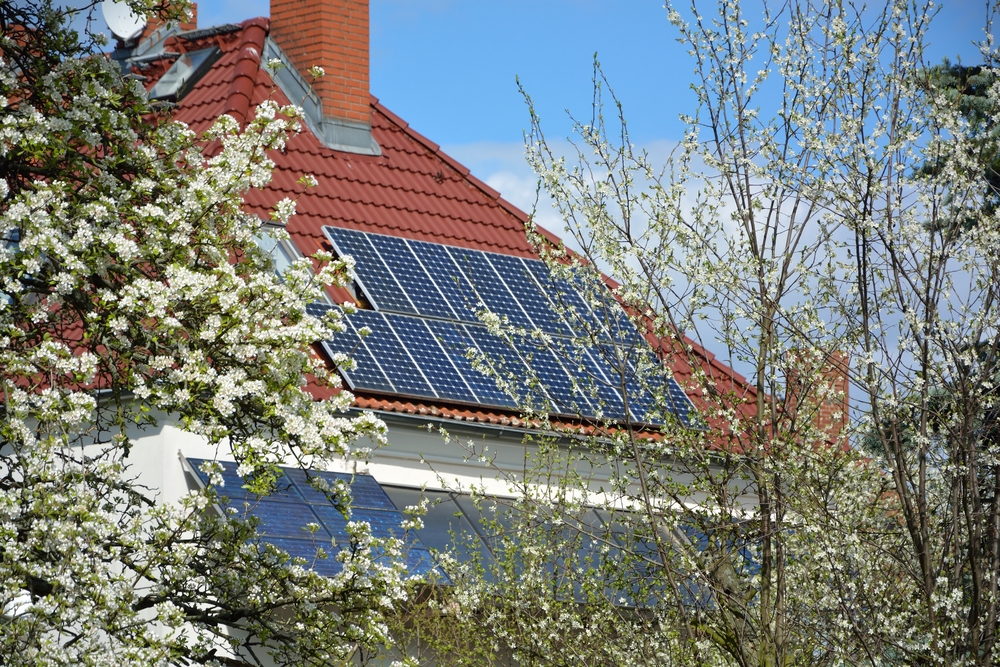
Net Metering for Solar Adopters, State by State
One of the ways that homeowners are incentivized to install solar systems in their homes is through net metering policies. What are net metering policies, what are the top states with net metering policies, and what are other states doing about net metering?
What Is Net Metering?
Net metering is a state-sponsored policy wherein distributed generation customers, such as those using solar panels or wind generators, can sell excess electricity to a utility to get credit on their utility bill. The result is that the overall power cost to the consumer is lowered.
Net metering systems help states meet their Renewable Portfolio Standards (RPS), which is the percentage of renewable electricity utilities are required to sell each year.
What Are the Top States for Net Metering?
As of October 2016, 42 states have net metering policies. The best net metering policies are called aggregate net metering, as opposed to conventional net metering. Aggregate net metering allows metering for specialized types of customers like multi-unit residences, renters, non-profits, and multi-property owners. This type of policy allows those customer types who cannot install distributed generation to benefit from net metering policies. There are 17 states that have aggregate net metering policies: Washington, Oregon, California, Nevada, Utah, Colorado, Minnesota, Missouri, Arkansas, West Virginia, Pennsylvania, New York, New Jersey, Connecticut, Delaware, Rhode Island and Maine.
What About the Rest of the States?
Of the eight states that do not have net metering policies, two (Mississippi and Georgia), have alternative distributed generation compensation rules, while two others (Texas and Idaho), have voluntary utility policies. Only South Dakota has no variation of distributed generation compensation policy.
Further, South Dakota does not appear to have any plans to amend this. In fact, in 2016, a South Dakota legislature killed a bill to force regulated utilities to use a standard set of criteria in establishing an avoided-cost rate. The passage of this bill would have resulted in higher excess production returns for self-power generating customers in South Dakota.
The two other states without net metering are Tennessee and Alabama. Tennessee’s power is covered by the Tennessee Valley Authority, which has their own distributed generation compensation plan called Green Power Providers. This plan also services parts of Northern Alabama. However, some residents feel that the GPP plan does not incentivize people to provide their own power as effectively as net metering does.
Net Metering and Solar Power Incentives
It’s important to realize that while net metering is an extremely important part of successful conversions to solar energy, it is not the only incentive for people to go solar. Even states with less than optimal net metering policies may offer tax credits, tax exemptions, and rebates for homeowners using solar energy.
In addition, even without net metering, solar installation can help save on energy costs, and of course, the use of solar power and other clean energy sources as alternatives to fossil fuels is very important for the continued survival of this planet.
If the State Where You Do Business Doesn’t Offer Net Metering…
If you are a solar installer or mortgage company in a state without net metering, it’s important to impress upon your customers the many benefits that still exist by going solar, while also pointing out that net metering policies in a given state could change for the better at almost any time.
If your state does have net metering, it’s a good idea to explain how it works to potential customers considering going solar, as they may not currently realize just how much money they can save in the long term with solar power installation.
Start making more
money today!
Search Categories
Tags
Tag Cloud
Latest from Twitter
Contact Us
Call us at 310-540-8900 or fill out the form below and we’ll tell you how you can get high quality leads for free*.
* Get up to 10% free leads on your first order!